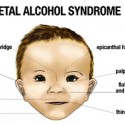Harsh truths about your alcohol intake
This summer has been another wet one. With all the rain it’s enough to drive you to drink!
Most of us enjoy a tipple now and again, but do we really know how much is safe and when to stop? Am I better off having an occasional pint or should I cut it out altogether? How do I recognise if I have a drink problem? Who can I contact when I want help with cutting back on my intake?
The Government has released so-called safe limits of alcohol in units per week. The lads get to drink slightly more than the ladies, but these limits can be misleading. Men should drink no more than 21 units or 10 pints in a week and women should drink no more than 14 units or seven large glasses of wine in a week.
However, unlike the French and the Italians, we tend not to have a glass or two in an evening, we gulp it all down on Friday or Saturday in the space of four or five hours, concentrating the insult to the liver into a short space of time.
When the safe limits were worked out they did not take this into account.
In any evening two to three drinks is more than enough and any more is likely to cause you harm.
Abstinence is better than excess but not better than a small amount daily. People who do not drink are slightly worse off in terms of overall health than those who drink one glass of wine or similar a day.
If you drink too much you put yourself at risk of liver cirrhosis (pickled liver), gastritis (stomach ulcer and inflammation), depression, sexual dysfunction, heart disease, high blood pressure, road traffic accidents, certain cancers, and obesity (three pints or glasses of wine is the equivalent of an extra meal a day!). Alcohol in pregnancy can be very harmful to the unborn baby’s development.
Anyone who shows signs of withdrawal after a day or two of not drinking is alcohol dependent. The signs of withdrawal include nausea or feeling sick, trembling, sweating, anxiety and a strong desire to have a drink. People whose work is affected by alcohol consumption, who drink by themselves or early in the day, or who try to conceal the amount they drink, are likely to have an alcohol problem.
Like any drug it can take time, effort and support to regain control. For some, this will mean stopping drinking alcohol completely. Few alcoholics can maintain a low intake without relapsing into heavy drinking again.
If you think you need help or know someone who does, your GP can point you in the right direction and may support you with advice and support on how to cut down.
That said, ‘everything in moderation’, there’s nothing like a pint or a glass of wine down by the river on a sunny day; just don’t have so much you need to be fished out.
___________
source: This Is Exeter
